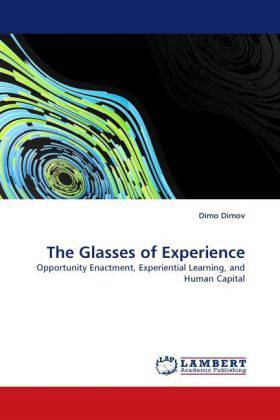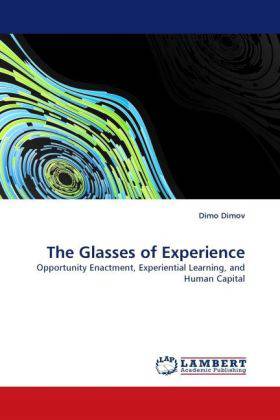
Bedankt voor het vertrouwen het afgelopen jaar! Om jou te bedanken bieden we GRATIS verzending (in België) aan op alles gedurende de hele maand januari.
- Afhalen na 1 uur in een winkel met voorraad
- In januari gratis thuislevering in België
- Ruim aanbod met 7 miljoen producten
Bedankt voor het vertrouwen het afgelopen jaar! Om jou te bedanken bieden we GRATIS verzending (in België) aan op alles gedurende de hele maand januari.
- Afhalen na 1 uur in een winkel met voorraad
- In januari gratis thuislevering in België
- Ruim aanbod met 7 miljoen producten
Zoeken
The Glasses of Experience
Opportunity Enactment, Experiential Learning, and Human Capital
Dimo Dimov
Paperback | Engels
€ 81,45
+ 162 punten
Omschrijving
This thesis presents a conceptual and empirical investigation of why some individuals and not others enact opportunities. It takes a distinct view of opportunities enacted possibilities of economic gain thereby bridging economics and psychology perspectives. In the developed theoretical model, opportunity enactment is an ideal type construct involving distinct configurations of information context, learning style, and specific human capital. Three categories of information context demand-driven, supply-driven, and replication-driven capture the environmental requirements imposed on individuals in conceiving of future possibilities. Learning style and specific human capital convey the uniqueness of an individual s prior experience. The former represents a developed pattern of interaction with one s environment, while the latter reflects one s stock of domain-specific knowledge. The model is tested in an experimental setting and further corroborated with data from the Panel Study of Entrepreneurial Dynamics. The thesis outlines a number of theoretical and methodological contributions, directions for future research, and implications for practice.
Specificaties
Betrokkenen
- Auteur(s):
- Uitgeverij:
Inhoud
- Aantal bladzijden:
- 188
- Taal:
- Engels
Eigenschappen
- Productcode (EAN):
- 9783838370255
- Verschijningsdatum:
- 6/06/2010
- Uitvoering:
- Paperback
- Afmetingen:
- 152 mm x 229 mm
- Gewicht:
- 281 g

Alleen bij Standaard Boekhandel
+ 162 punten op je klantenkaart van Standaard Boekhandel
Beoordelingen
We publiceren alleen reviews die voldoen aan de voorwaarden voor reviews. Bekijk onze voorwaarden voor reviews.









